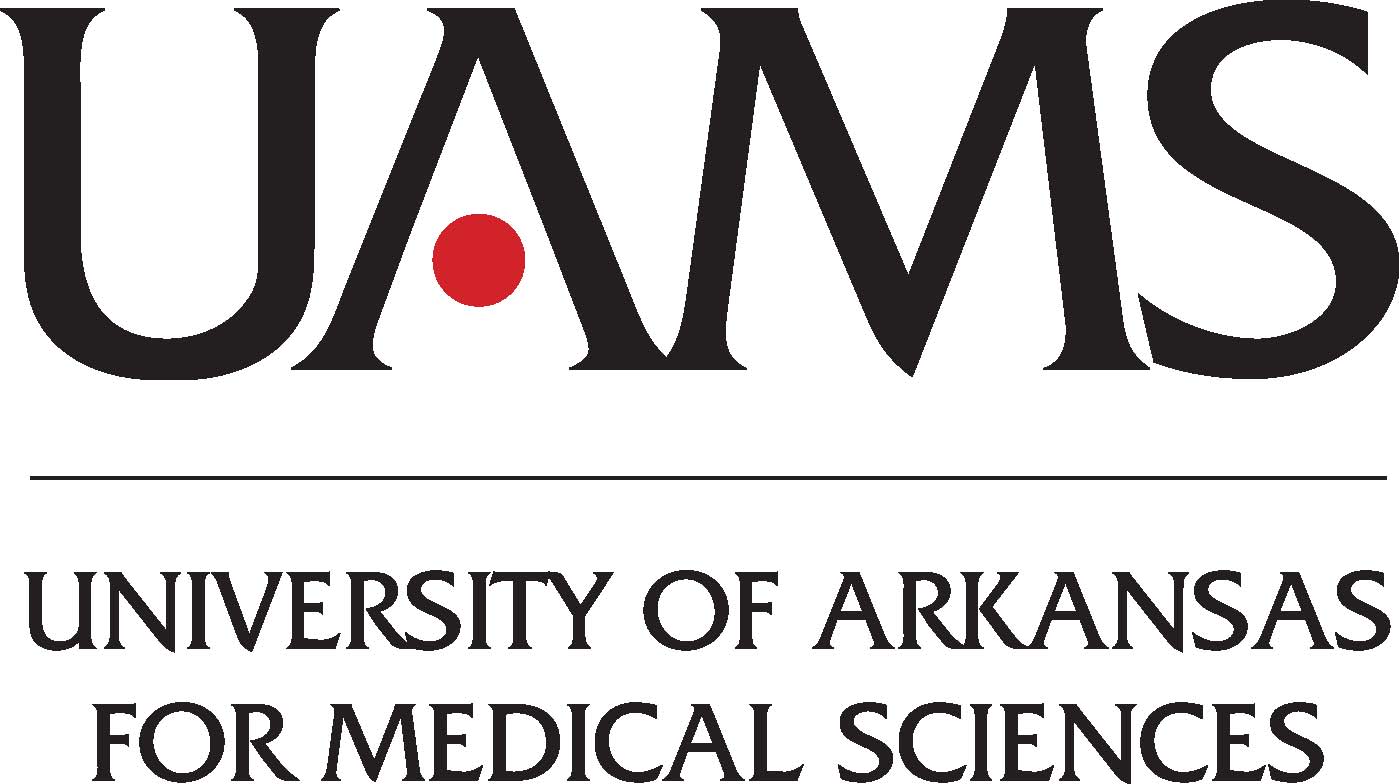Immunotherapy Study for Surgically Resected Pancreatic Cancer
| Status: | Completed |
|---|---|
| Conditions: | Cancer, Cancer, Pancreatic Cancer |
| Therapuetic Areas: | Oncology |
| Healthy: | No |
| Age Range: | 18 - Any |
| Updated: | 2/28/2019 |
| Start Date: | April 2010 |
| End Date: | May 2016 |
A Phase III Study of Chemotherapy and Chemoradiotherapy With or Without Algenpantucel-L (HyperAcute®-Pancreas) Immunotherapy in Subjects With Surgically Resected Pancreatic Cancer
The purpose of this study is to assess overall survival after treatment with a regimen of
adjuvant therapy (Gemcitabine alone or with 5-FU chemoradiation) with or without
HyperAcute®-Pancreas (algenpantucel-L) immunotherapy in subjects who have undergone surgical
resection.
adjuvant therapy (Gemcitabine alone or with 5-FU chemoradiation) with or without
HyperAcute®-Pancreas (algenpantucel-L) immunotherapy in subjects who have undergone surgical
resection.
Unfortunately, despite the best clinical efforts and breakthroughs in biotechnology, most
patients diagnosed with pancreatic cancer continue to die from the rapid progression of their
disease. The primary reason for this is that the disease is typically without symptoms until
significant local and/or distant spread has occurred and is often beyond the chance for cure
at the time of the diagnosis. The lack of any treatment to significantly increase long term
survival rates is reflected by the poor outcomes associated with this disease, specifically
time to disease progression and overall survival.
These disappointing facts typically shape discussions of treatment options for patients with
this disease. However, another important part of the body is now being looked at as a target
for therapy against this disease -- the immune system. Scientists have clearly shown that
pancreatic tumor cells produce a number of defective proteins, or express normal proteins in
highly uncharacteristic ways, as part of this cancer. In some cancers, these abnormalities
can cause an immune response to the cancer cells much in the way one responds to infected
tissue. In progressive cancers however, the immune system fails to identify or respond to
these abnormalities and the cancer cells are not attacked or destroyed for reasons not yet
fully understood. This clinical trial proposes a new way to stimulate the immune system to
recognize the abnormal components found in pancreatic cancer cells and to stimulate an immune
response that destroys or blocks the growth of the cancer.
This new method of treatment helps the immune system of pancreatic cancer patients to
"identify" the cancerous tissue so that it can be eliminated from the body. As an example,
most people are aware that patients with certain diseases may require an organ transplant to
replace a damaged kidney or heart. After receiving their transplant these patients receive
special drugs because they are at great danger of having an immune response that destroys or
"rejects" the transplanted organ. This "rejection" occurs when their immune system responds
to differences between the cells of the transplanted organ and their own immune system by
attacking the foreign tissue in the same way as it would attack infected tissue. When the
differences between foreign tissues and the patient's body are even larger, perhaps like
differences between organs from pigs and the immune system cells of humans, the rejection is
very rapid, highly destructive and the immunity it generates is long lasting. This is called
hyperacute rejection and the medicine used to immunize patients in this protocol tries to
harness this response to teach a patient's immune system to fight their pancreatic cancer
just as the body would learn to reject a transplanted organ from an animal.
To do this, the investigators have placed a mouse gene into human pancreatic cancer cells so
that the immune system will easily recognize them as foreign, stimulating the patient immune
system to attack the vaccine cells just as they would any other animal cells. As part of the
process of destroying the immunotherapy cells, the patient immune system is stimulated to
identify as many differences from normal human as possible. This extra stimulation is thought
to encourage immune responses against the pancreatic cancer in the patient based on shared
abnormalities of pancreatic cancer vaccine cells and the patient's pancreatic cancer cells.
In this experimental therapy, patients are given injections of an immunotherapy consisting of
two types of cancer cells that the investigators have modified to make them more easily
recognized and attacked by the immune system. The investigators propose to test this new
treatment in patients with pancreatic cancer who have undergone tumor removal surgery but
remain at extremely high risk of disease progression to demonstrate that treatment with the
immunotherapy increases the time until the tumor recurs or increases overall survival when
given in combination with the current standard of care therapy for this disease.
For more information, please see our study specific website:
www.pancreaticcancer-clinicaltrials.com
patients diagnosed with pancreatic cancer continue to die from the rapid progression of their
disease. The primary reason for this is that the disease is typically without symptoms until
significant local and/or distant spread has occurred and is often beyond the chance for cure
at the time of the diagnosis. The lack of any treatment to significantly increase long term
survival rates is reflected by the poor outcomes associated with this disease, specifically
time to disease progression and overall survival.
These disappointing facts typically shape discussions of treatment options for patients with
this disease. However, another important part of the body is now being looked at as a target
for therapy against this disease -- the immune system. Scientists have clearly shown that
pancreatic tumor cells produce a number of defective proteins, or express normal proteins in
highly uncharacteristic ways, as part of this cancer. In some cancers, these abnormalities
can cause an immune response to the cancer cells much in the way one responds to infected
tissue. In progressive cancers however, the immune system fails to identify or respond to
these abnormalities and the cancer cells are not attacked or destroyed for reasons not yet
fully understood. This clinical trial proposes a new way to stimulate the immune system to
recognize the abnormal components found in pancreatic cancer cells and to stimulate an immune
response that destroys or blocks the growth of the cancer.
This new method of treatment helps the immune system of pancreatic cancer patients to
"identify" the cancerous tissue so that it can be eliminated from the body. As an example,
most people are aware that patients with certain diseases may require an organ transplant to
replace a damaged kidney or heart. After receiving their transplant these patients receive
special drugs because they are at great danger of having an immune response that destroys or
"rejects" the transplanted organ. This "rejection" occurs when their immune system responds
to differences between the cells of the transplanted organ and their own immune system by
attacking the foreign tissue in the same way as it would attack infected tissue. When the
differences between foreign tissues and the patient's body are even larger, perhaps like
differences between organs from pigs and the immune system cells of humans, the rejection is
very rapid, highly destructive and the immunity it generates is long lasting. This is called
hyperacute rejection and the medicine used to immunize patients in this protocol tries to
harness this response to teach a patient's immune system to fight their pancreatic cancer
just as the body would learn to reject a transplanted organ from an animal.
To do this, the investigators have placed a mouse gene into human pancreatic cancer cells so
that the immune system will easily recognize them as foreign, stimulating the patient immune
system to attack the vaccine cells just as they would any other animal cells. As part of the
process of destroying the immunotherapy cells, the patient immune system is stimulated to
identify as many differences from normal human as possible. This extra stimulation is thought
to encourage immune responses against the pancreatic cancer in the patient based on shared
abnormalities of pancreatic cancer vaccine cells and the patient's pancreatic cancer cells.
In this experimental therapy, patients are given injections of an immunotherapy consisting of
two types of cancer cells that the investigators have modified to make them more easily
recognized and attacked by the immune system. The investigators propose to test this new
treatment in patients with pancreatic cancer who have undergone tumor removal surgery but
remain at extremely high risk of disease progression to demonstrate that treatment with the
immunotherapy increases the time until the tumor recurs or increases overall survival when
given in combination with the current standard of care therapy for this disease.
For more information, please see our study specific website:
www.pancreaticcancer-clinicaltrials.com
Inclusion Criteria:
- A histological diagnosis of adenocarcinoma of the pancreas confirmed by pathology.
- American Joint Committee on Cancer (AJCC) Stage I or II Pancreatic carcinoma. Patients
must have undergone surgical resection for the tumor and extent of resection must be
either R0 (complete resection with grossly and microscopically negative margins of
resection) or R1 (grossly negative but positive microscopically margins of resection).
- Eastern Cooperative Oncology Group (ECOG) Performance Status ≤ 2.
- Serum albumin ≥2.0 gm/dL.
- Expected survival ≥6 months.
- Subjects must be able to take in adequate daily calorie intake based on judgment of
clinical investigator.
- Adequate organ function including:
- A. Marrow: white blood cells (WBC) ≥3000/mm3 and platelets ≥100,000/mm3.
- B. Hepatic: serum total bilirubin ≤2 x ULN mg/dL, ALT (SGPT) and AST (SGOT) ≤3 x upper
limit of normal (ULN).
- C. Renal: serum creatinine (sCr) ≤2.0 x ULN, or creatinine clearance (Ccr) ≥30 mL/min.
- First vaccination must be within 10 weeks after surgery.
- Patients must have the ability to understand the study, its inherent risks, side
effects and potential benefits and be able to give written informed consent to
participate. Patients may not be consented by a durable power of attorney (DPA).
- All subjects of child producing potential must agree to use contraception or avoidance
of pregnancy measures while enrolled on study and receiving the experimental product,
and for one month after the last immunization.
Exclusion Criteria:
- Age <18-years-old.
- Active metastases. Suspicious lesions on CT scans must be reviewed by a second,
different reviewer. If active disease not ruled out by second, different reviewer (at
clinical institution), a positron emission tomography (PET) CT or further imaging
tests or histology may be needed to rule out disease before enrollment is allowed.
- Other malignancy within five years, unless the probability of recurrence of the prior
malignancy is <5% as determined by the Principal Investigator based on available
information. Patient's curatively treated for squamous and basal cell carcinoma of the
skin or patients with a history of malignant tumor in the past that have been disease
free for at least five years are also eligible for this study.
- History of organ transplant.
- Current, active immunosuppressive therapy such as cyclosporine, tacrolimus, etc.
- Subjects taking chronic systemic corticosteroid therapy for any reason are not
eligible. Subjects may receive steroids as prophylactic anti-emetics, not to exceed 10
mg Decadron weekly. Subjects may also receive pulse doses for Gemcitabine
hypersensitivity, not to exceed Decadron 8 mg twice a day (BID) x 3 days prior to
start day of Gemcitabine. Subjects receiving inhaled or topical corticosteroids are
eligible. Subjects who require chronic systemic corticosteroids after beginning
vaccination, will be removed from study.
- Significant or uncontrolled congestive heart failure (CHF),myocardial infarction or
significant ventricular arrhythmias within the last six months.
- Active infection or antibiotics within 48 hours prior to study,including unexplained
fever (temp > 38.1C).
- Autoimmune disease (e.g., systemic lupus erythematosis (SLE), rheumatoid arthritis
(RA), etc.). Patients with a remote history of asthma or mild active asthma are
eligible.
- Other serious medical conditions that may be expected to limit life expectancy to less
than 2 years (e.g., liver cirrhosis) or a serious illness in medical opinion of the
clinical investigator.
- Any condition, psychiatric or otherwise, that would preclude informed consent,
consistent follow-up or compliance with any aspect of the study (e.g., untreated
schizophrenia or other significant cognitive impairment, etc.).
- A known allergy to any component of the HyperAcute® immunotherapy.
- Pregnant or nursing women due to the unknown effects of vaccination on the developing
fetus or newborn infant. (For patients with child bearing potential, a βHCG must be
completed within 14 days of first vaccination).
- Known HIV positive.
We found this trial at
75
sites
Click here to add this to my saved trials
Click here to add this to my saved trials
Beth Israel Deaconess Medical Center Beth Israel Deaconess Medical Center (BIDMC) is one of the...
Click here to add this to my saved trials
University of Florida The University of Florida (UF) is a major, public, comprehensive, land-grant, research...
Click here to add this to my saved trials
Baylor College of Medicine Baylor College of Medicine in Houston, the only private medical school...
Click here to add this to my saved trials
Indiana University INDIANA UNIVERSITY is a major multi-campus public research institution, grounded in the liberal...
Click here to add this to my saved trials
University of Iowa With just over 30,000 students, the University of Iowa is one of...
Click here to add this to my saved trials
Mayo Clinic Mayo Clinic's campus in Arizona provides medical care for thousands of people from...
Click here to add this to my saved trials
Click here to add this to my saved trials
529 West Markham Street
Little Rock, Arkansas 72205
Little Rock, Arkansas 72205
(501) 686-7000

University of Arkansas for Medical Sciences The University of Arkansas for Medical Sciences (UAMS) in...
Click here to add this to my saved trials
University of Southern California The University of Southern California is one of the world’s leading...
Click here to add this to my saved trials
Cedars Sinai Med Ctr Cedars-Sinai is known for providing the highest quality patient care. Our...
Click here to add this to my saved trials
University of Miami A private research university with more than 15,000 students from around the...
Click here to add this to my saved trials
Mount Sinai Med Ctr Founded in 1852, The Mount Sinai Hospital is a 1,171-bed, tertiary-care...
Click here to add this to my saved trials
Columbia University In 1897, the university moved from Forty-ninth Street and Madison Avenue, where it...
Click here to add this to my saved trials
3181 Southwest Sam Jackson Park Road
Portland, Oregon 97239
Portland, Oregon 97239
503 494-8311

Oregon Health and Science University In 1887, the inaugural class of the University of Oregon...
Click here to add this to my saved trials
University of New Mexico Founded in 1889 as New Mexico’s flagship institution, the University of...
Click here to add this to my saved trials
University of Michigan The University of Michigan was founded in 1817 as one of the...
Click here to add this to my saved trials
Click here to add this to my saved trials
Click here to add this to my saved trials
University of Maryland As a globally-connected university offering a world-class education, the University of Maryland...
Click here to add this to my saved trials
Click here to add this to my saved trials
St Luke'S Hospital And Health Network St. Luke's University Health Network (SLUHN) is a nonprofit,...
Click here to add this to my saved trials
Click here to add this to my saved trials
Click here to add this to my saved trials
Dana-Farber Cancer Institute Since it’s founding in 1947, Dana-Farber has been committed to providing adults...
Click here to add this to my saved trials
Lahey Clinic When Frank Lahey, MD, founded a group practice in 1923, his vision was...
Click here to add this to my saved trials
University of Virginia The University of Virginia is distinctive among institutions of higher education. Founded...
Click here to add this to my saved trials
University of Cincinnati The University of Cincinnati offers students a balance of educational excellence and...
Click here to add this to my saved trials
Click here to add this to my saved trials
University of Missouri T he University of Missouri was founded in 1839 in Columbia, Mo.,...
Click here to add this to my saved trials
Ohio State University The Ohio State University’s main Columbus campus is one of America’s largest...
Click here to add this to my saved trials
University of Texas Southwestern Medical Center UT Southwestern is an academic medical center, world-renowned for...
Click here to add this to my saved trials
Henry Ford Hospital Founded in 1915 by auto pioneer Henry Ford and now one of...
Click here to add this to my saved trials
1500 East Duarte Road
Duarte, California 91010
Duarte, California 91010
626-256-HOPE (4673)

City of Hope National Medical Center City of Hope is dedicated to making a difference...
Click here to add this to my saved trials
Duke Univ Med Ctr As a world-class academic and health care system, Duke Medicine strives...
Click here to add this to my saved trials
Click here to add this to my saved trials
Click here to add this to my saved trials
Click here to add this to my saved trials
Click here to add this to my saved trials
Click here to add this to my saved trials
Click here to add this to my saved trials
Click here to add this to my saved trials
Click here to add this to my saved trials
University of Louisville The University of Louisville is a state supported research university located in...
Click here to add this to my saved trials
Click here to add this to my saved trials
Lynchburg Hematology-Oncology Clinic Lynchburg Hematology Oncology is a medical oncology and hematology practice located on...
Click here to add this to my saved trials
University of Wisconsin In achievement and prestige, the University of Wisconsin–Madison has long been recognized...
Click here to add this to my saved trials
Click here to add this to my saved trials
University of South Alabama "University of South Alabama is a public institution that was founded...
Click here to add this to my saved trials
Click here to add this to my saved trials
University of Oklahoma The OU Health Sciences Center is composed of seven health-related colleges located...
Click here to add this to my saved trials
Univ of Nebraska Med Ctr A vital enterprise in the nation’s heartland, the University of...
Click here to add this to my saved trials
Click here to add this to my saved trials
Click here to add this to my saved trials
Thomas Jefferson University We are dedicated to the health sciences and committed to educating professionals,...
Click here to add this to my saved trials
Univ of Pennsylvania Penn has a long and proud tradition of intellectual rigor and pursuit...
Click here to add this to my saved trials
Click here to add this to my saved trials
Click here to add this to my saved trials
Virginia Commonwealth University Since our founding as a medical school in 1838, Virginia Commonwealth University...
Click here to add this to my saved trials
Click here to add this to my saved trials
Click here to add this to my saved trials
Click here to add this to my saved trials
Click here to add this to my saved trials
Click here to add this to my saved trials
California Pacific Medical Center California Pacific Medical Center is one of the largest private, not-for-profit,...
Click here to add this to my saved trials
Click here to add this to my saved trials
Click here to add this to my saved trials
Click here to add this to my saved trials
Click here to add this to my saved trials
Click here to add this to my saved trials
Georgetown University Georgetown University is one of the world's leading academic and research institutions, offering...
Click here to add this to my saved trials
Click here to add this to my saved trials
Click here to add this to my saved trials



































